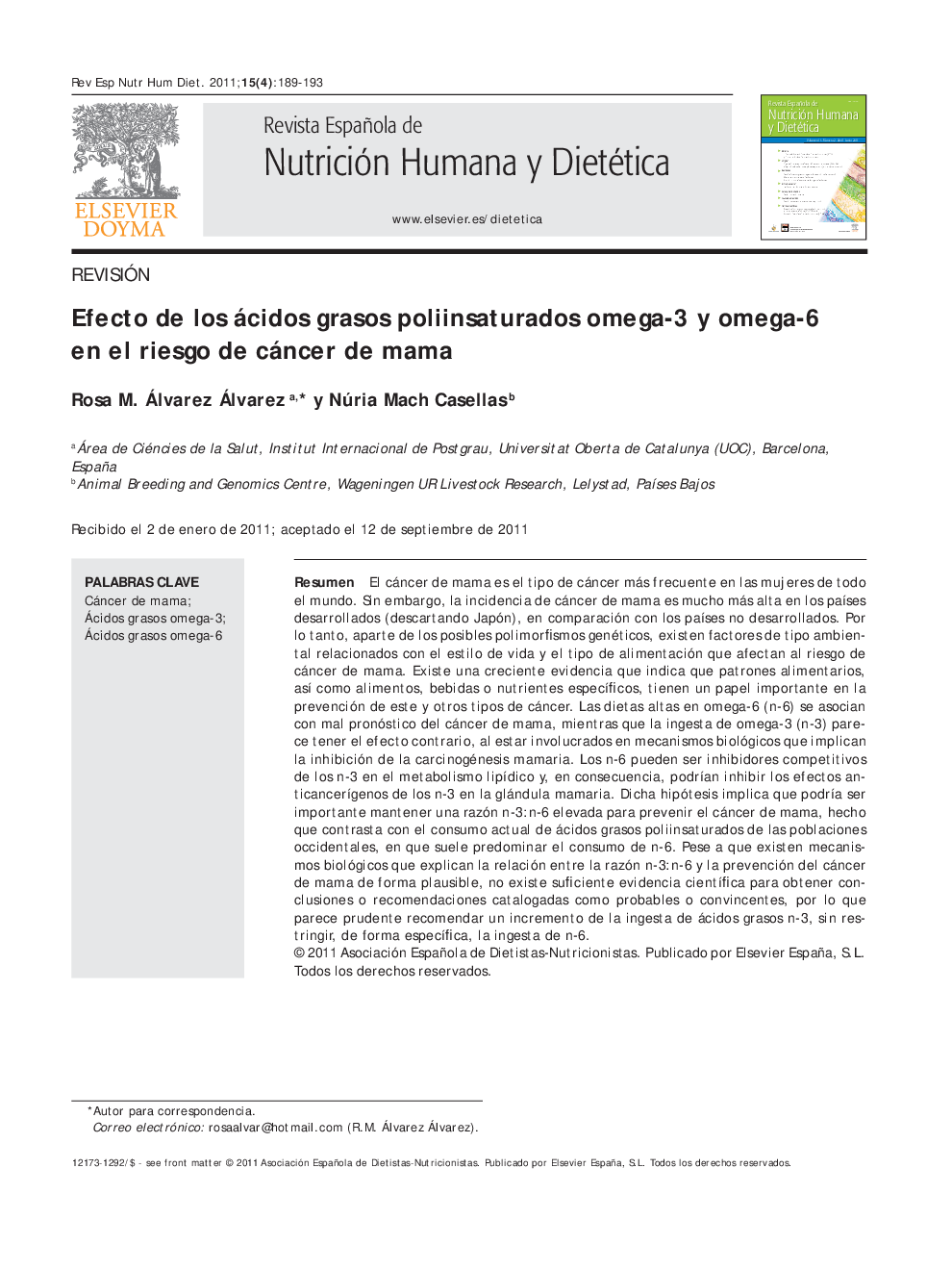| Article ID | Journal | Published Year | Pages | File Type |
|---|---|---|---|---|
| 2688859 | Revista Española de Nutrición Humana y Dietética | 2011 | 5 Pages |
Abstract
Breast cancer is the most common cancer in women around the world. However, the incidence of breast cancer is much higher in developed countries (discarding Japan) compared to undeveloped countries. Therefore, apart from the possible genetic polymorphisms, there are environmental factors related to lifestyle and diet which affect the risk of breast cancer. There is growing evidence indicating that dietary behaviour, as well as food, beverages or specific nutrients play an important role in preventing this and other types of cancer. Diets high in omega-6 (n-6) are associated with a poor prognosis of breast cancer, while the intake of omega-3 (n-3) seems to have the opposite effect, due to be involved in biological mechanisms that involve the inhibition of mammary carcinogenesis. The n-6 can be competitive inhibitors of the n-3 in lipid metabolism and therefore could inhibit the anticancer effects of n-3 in the mammary gland. This hypothesis implies that it could be important to maintain a ratio of n-3:n-6 high for the prevention of breast cancer, a fact which contrasts with the current consumption of polyunsaturated fatty acids in Western populations, where the consumption of n-6 usually dominates. Despite the fact that there are biological mechanisms that explain the relationship between n-3:n-6 ratio and the prevention of breast cancer as plausible, there is not enough scientific evidence to obtain conclusions or recommendations classified as probable or compelling, it seems prudent to recommend an increase in the intake of fatty acids n-3 without specifically restricting the intake of n-6.
Related Topics
Health Sciences
Nursing and Health Professions
Nutrition
Authors
Rosa M. Álvarez Álvarez, Núria Mach Casellas,
